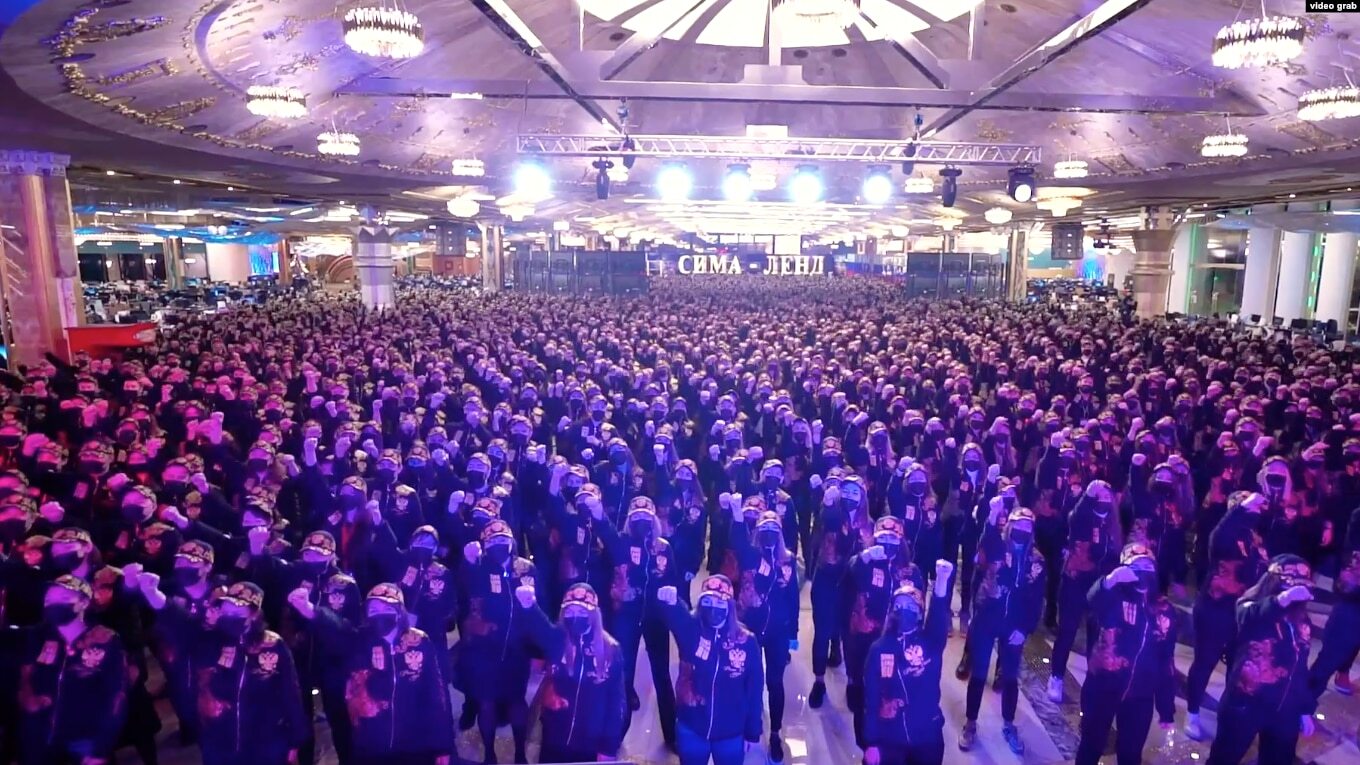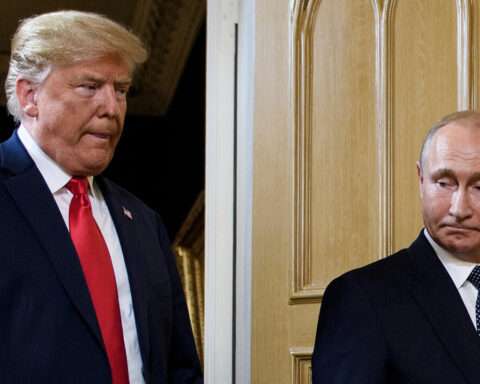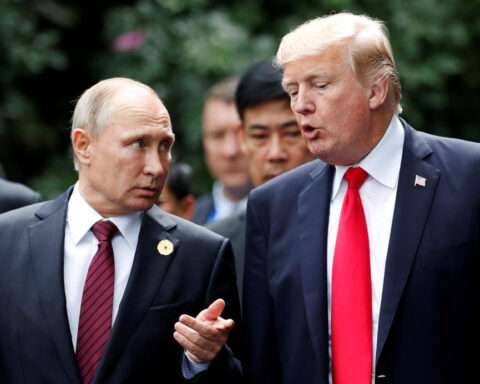In numerous cities across the country, students and worker collectives are coming together to record choreographed video clips in support of President Vladimir Putin.
In Siberia, the Urals, and towns around Moscow, employees have donned the uniforms of the factories they staff and waved their arms in unison to the sound of patriotic music and slogans like “Putin is our president!” and “Vladimir Vladimirovich, we’re with you!”
Government newspaper Rossiiskaya Gazeta gushed: “Factory hands, volunteers, athletes, staff of major enterprises, and people who are simply not indifferent are recording video addresses to Vladimir Putin with words of gratitude.”
But testimonies from participants suggest that the performances, which in most cases defy all rules on social distancing and mask wearing, are hardly a spontaneous outpouring of love for the country’s leader of 21 years.
Students at Moscow Law School say they received identical messages offering 50 of them the chance to participate in an event to be shown on national television and an invitation to meet lawmakers in the lower house of parliament, the State Duma, which co-organized the event.
It would be an event “in support of our country as a leader in the fight against COVID,” said a copy of the message shared by one of the students and posted online by the opposition-minded student journal DOXA.
But when they arrived at the Moscow hotel where the short clip was to be filmed, DOXA reported, it became clear the event had little to do with the pandemic. Instead, students were placed before a large screen listing pro-Putin slogans and asked to shout them out while waving Russian flags.
The stunt in Moscow was just one of many pro-government events that have taken place in an apparent state-sanctioned response to the protests, which took place on January 23, January 31, and February 2 and demanded the release of jailed opposition politician Aleksei Navalny.
Ahead of each protest, Russian authorities cracked down on opposition activists and went after social-media platforms that carried clips backing Navalny, which on the Chinese-made video app TikTok received at least 100 million views.
Russia’s communications watchdog demanded that TikTok remove the content and threatened to issue hefty fines against any platform that publishes material containing incitement to protest. But the #FreedomForNavalny hashtag kept being attached to more and more content, and the authorities’ warnings only appeared to fuel a viral trend.
That’s when the pro-Putin parades began — and the rival hashtag #PutinIsOurPresident appeared.
In Barnaul, the workers of an asbestos factory posted their own choreographed clip on the company’s Instagram page, writing: “This is our country, our civic stance, and our choice!”
In Samara, a couple dozen schoolchildren gathered in a soccer stadium and started dancing to a song by the popular rock band Lyube. A man opens the clip by stating: “Young people are the heart and engine of our motherland. The youth of Samara fully support Putin, our president!”
The first such performance took place in Yekaterinburg, where several hundred workers danced in the warehouse of the online supermarket Sima-Land to the same Lyube song. Sima-Land owner Andrei Simanovsky told local news outlet E1.ru that he had “simply wanted to” record the clip and that it had no connection to the wave of protests rocking Russia.
But an anonymous participant in the event later told the same outlet that workers were initially asked to take part in a video to celebrate their return to the office after weeks of working remotely due to the coronavirus.
“No one warned us of chants about Putin. They gave us no choice,” the employee said.
Another participant, Olga Poltaranova, was defiant.
“Yes, I danced. Yes, willingly. Yes, I love Putin. So f*** off with your opinions,” she wrote on the Russian social-media platform VK.
By Matthew Luxmoore






